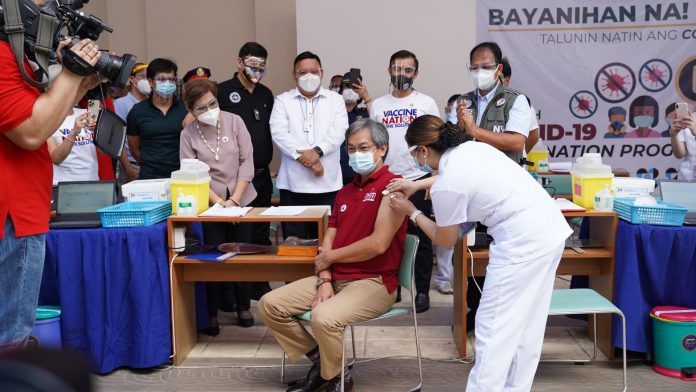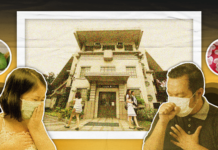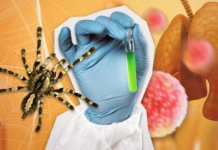
A new coronavirus variant has been detected in the Philippines just days after the country launched its inoculation drive—the B.1.351 or the South African variant.
The first cases of the South African variant were detected in the country on March 2. As of March 5, 58 total cases have been confirmed by the Department of Health.
Compared to other variants, the South African variant is 50 percent more transmissible, South African epidemiologist and infectious diseases expert Dr. Salim Abdool Karim said during a scientific panel on the new variant last Jan. 18.
But there is still no evidence to suggest that the variant is more lethal, according to the London and South Africa study that Karim cited.
The South African variant was first detected early October 2020 in Nelson Mandela Bay, South Africa, according to the US Centers for Disease Control and Prevention. It has since been detected in more than 30 countries.
Travel restrictions to and from South Africa have been imposed by the United States, United Arab Emirates and some European countries to contain the spread of the variant.
In the United Kingdom, only British and Irish nationals are allowed to enter the country and will be quarantined for 10 days if they came from the government’s “red list” of travel ban countries.
Will the Covid-19 vaccines work against the new variant?
While efficacy studies are still being conducted, early data suggested that the South Africa variant was resistant to some Covid-19 vaccines, including those that the country plans to procure.
The AstraZeneca vaccine, of which the country is expected to receive 17 million doses, was found to be only 10 percent effective against the more infectious variant.
Fr. Nicanor Austriaco, O.P., a molecular biologist and visiting professor in UST, warned that the AstraZeneca vaccine might be useless like “injecting water” if the South Africa variant continues to spread in the country in the Philippines.
“The government has to really try to prevent the spread of the South African variant because you know our numbers, our projections, depend upon the transmission of the continuous spread and the vaccination campaign also depends upon the successful prevention of the spread of this variant,” he told CNN Philippines last March 2.
But the World Health Organization (WHO) refuted the study on the AstraZeneca vaccine showing low efficacy against the variant saying it had a “very small sample.”
The study was conducted on some 2,000 people aged 31 in South Africa and has not yet been peer-reviewed.
Pfizer-BioNTech’s vaccine was also found to be less effective in a new preliminary study by the University of Texas Medical Branch at Galveston.
The country began its inoculation drive last March 1 using donated Sinovac vaccines. Caitlin Dayne A. Contreras












